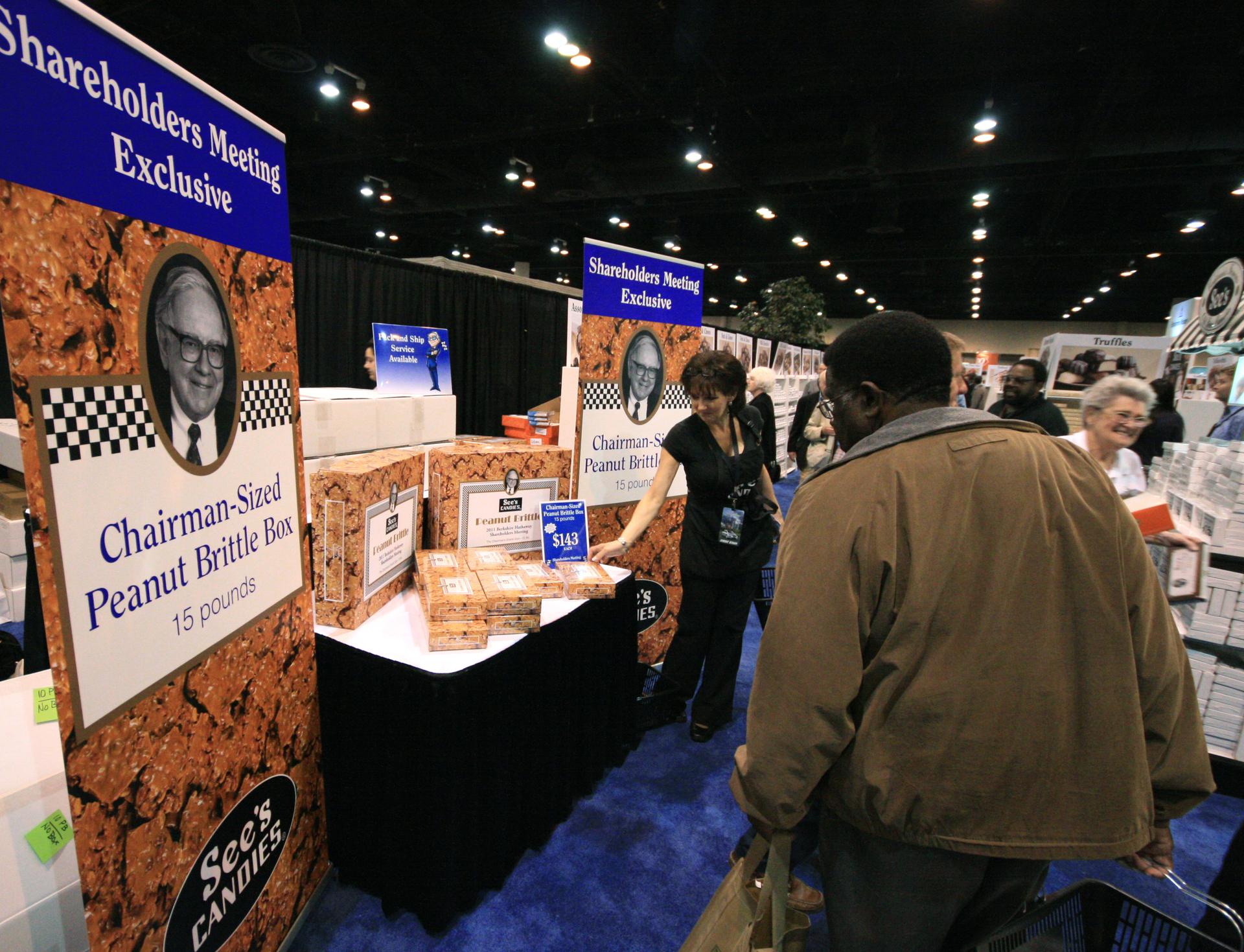Macro chatter: Europe votes against austerity
Warren Buffett had peanut brittle at his annual meeting a.k.a. the “Woodstock of capitalism” in 2011.
Need to know:
European voters have had enough of government budget cutbacks.
Voters in France and Greece ousted leaders pushing government spending cuts and instead picked candidates who are against the austerity measures being criticized for holding back a European recovery.
Francois Hollande won the French presidency from Nicolas Sarkozy while Greece's dominant political parties failed to win enough votes in Sunday's election to form a ruling coalition.
Greek voters embrace of anti-bailout parliamentary candidates is increasing worries that Greece won't commit to the budget cuts it needs to make to stay in the euro zone.
The elections were essentially referendums on current European economic policy and their outcomes could be the best thing for the euro zone, Nobel prize-winning economist Paul Krugman wrote in The New York Times. "It’s far from clear how soon the votes will lead to changes in actual policy, but time is clearly running out for the strategy of recovery through austerity — and that’s a good thing," Krugman wrote.
Want to know:
Romania already is planning to ease up on at least one of the austerity measures it implemented in 2010.
Romania has convinced the International Monetary Fund to allow it to begin raising public sector wages and run a higher budget deficit than a bailout deal it made with the IMF would dictate, Reuters reported. Romania is the European Union’s second poorest member. It cut public sector wages by 25 percent, and things haven’t gone well.
Romanians have been staging violent protests against austerity measures like spending cuts and tax hikes, and the Romanian government has already collapsed twice this year.
Dull but important:
Australia’s strong dollar may be getting in the way of its growth.
Australia’s central bank cut its growth forecast, saying a strong Australian dollar was hurting the country’s exports. The value of Australia’s dollar has risen an estimated 70 percent since 2008, making its exports far more expensive to the rest of the world.
It's a particularly big problem for Australia because it is the world’s largest exporter of iron ore and coal.
Just because:
Warren Buffett held his annual shareholder meeting in Omaha, Neb., this weekend where he worked hard to reassure investors that both he and his Berkshire Hathaway were going to be ok.
Buffett revealed Berkshire Hathaway has got $20 billion or so to throw around for a good investment and said that he might want to buy a few more newspapers. He also told investors not to focus on share prices too much because the stock market sometimes acts like a “psychotic drunk,” the Berkshire Hathaway-owned Omaha World-Herald said.
Berkshire Hathaway stock has been underperforming the market for the past few years but that hasn't stopped thousands of investors from making an annual trip to Omaha.
Shareholders are allowed four passes to the meeting, which draws thousands has become something of a Woodstock capitalists. In case you’re curious, buying one share of Berkshire Hathaway stock to get in will set you back about $122,000.
Strange but true:
Attention wealthy travelers, you can now have a drink with Sir Richard Branson on his Virgin Atlantic airlines — at least until he melts.
Virgin Atlantic is rolling out “Little Richard” ice cubes in its Upper Class cabins this month to celebrate its snazzy new onboard bars. The ice cubes not only look just like Branson but also match the dimensions of the eccentric billionaire’s head.
Virgin said the Little Richards are its way of letting passengers enjoy some chill out time with its fearless leader since he doesn’t have the time to enjoy a grin and tonic with everyone.
Every day, reporters and producers at The World are hard at work bringing you human-centered news from across the globe. But we can’t do it without you. We need your support to ensure we can continue this work for another year.
Make a gift today, and you’ll help us unlock a matching gift of $67,000!
